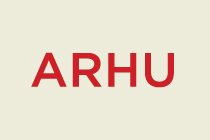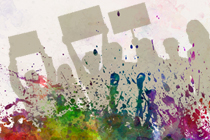ESPN’s Scott Van Pelt is asking an important question for the world of professional golf after Tiger Woods’ victory at the Masters Tournament nearly 20 years ago: “Why haven’t more African Americans joined the game?”
In collaboration with the University of Maryland’s Arts and Humanities Center for Synergy, Van Pelt is moderating a daylong symposium, “Race, Social Class and Professional Golf,” on Friday, March 4, to ask and address questions of race and social class in professional golf.
Van Pelt believes it is important that we engage in a dialogue on issues of race and culture and how we use language in framing controversial topics. As this year’s Masters Tournament approaches in April, questions of diversity in sports resurface in our conversations and in the media.
The symposium is free and open to the public. To register, click here.
Van Pelt has been covering golf for years. He kickstarted his sportscasting career at the Golf Channel and then moved on to ESPN, where he currently serves as a presenter for SportsCenter and is one of the network’s top golf correspondents. He covers major golf tournaments including the Masters Tournament and the U.S. Open.
This is an arts and humanities themed race discussion to support the campus’s initiative–The Maryland Dialogues on Diversity and Community–a series of events that aims to help advance discussions of identity, difference and commonality. The Maryland Dialogues (include link) emphasize issues of race and racism, not in isolation but in relation to issues of gender, sexuality, class, ethnicity and language, each of which will be the focus of future lectures and symposiums on campus.
This event is co-sponsored by the University of Maryland’s Golf Course and the Philip Merrill College of Journalism.
Media space is limited; credentialed media only; advance media registration required.
WHEN:
Friday, March 4, 2016, 9 a.m. – 4 p.m.
9 a.m. – Welcome, Bonnie Thornton Dill, professor and dean, College of Arts and Humanities
Introduction: Scott Van Pelt, alumnus, ESPN commentator and anchor, SportsCenter
9:15 a.m. – Session 1: Journalists and industry officials
- Steve Burkowski, reporter and producer, Golf Central, Golf Channel
- George Bradford, alumnus, PGA golfer
10:30 a.m. – Session 2: Academics and authors
- Othello Harris, sports sociologist, professor, University of Miami of Ohio
- Jane Stangl, dean, first-year class, Smith College; sports sociologist, consultant to LPGA
- Rose Harper, founder, Grass Ceiling Inc.; originator, Golf Digest Minority Golf Summit and PGA Tour Wives Association
Noon – Lunch break
1:30 p.m. – Session 3: The life and work of an African American golfer
- Harold Varner III, PGA golfer
3 p.m. – Session 4: Q/A and action recommendations
- Jon Guhl, Middle Atlantic executive director, PGA
- Clint Sanchez, executive director, The First Tee of Greater Washington, D.C.
WHERE:
University of Maryland Golf Course, 3800 Golf Course Road, College Park, MD 20742
MEDIA:
Media coverage of the event is welcome; however, space is limited and restricted to credentialed media who have pre-registered. Media badges will be distributed on site.
To register, media representatives should send email requests and RSVP to:
Nicky Everette, director of marketing and communications for the College of Arts and Humanities, at meve@umd.edu or 301-405-6714.
Please indicate: name(s) and position(s), media affiliation, credentials possessed [these will be required at check-in] and full contact information so we can confirm your request. We will email you a confirmation of your registration, along with parking and check-in details.













